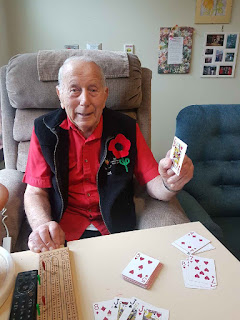Elections are the foundation of democracy
Frank Bucholtz photo
This instruction to voters was posted all over Sierra Leone (in West Africa), as voters there prepared to vote in a presidential runoff election in March. As noted near the bottom of the poster, the Government of Canada (i.e. Canadian taxpayers) helped to support the voter education process. The runoff election went very smoothly. If democracy can be that resilient and powerful in Sierra Leone, it most certainly can be the same in B.C.
The shouting is almost over. The signs, somewhat
reduced in number, will be coming down. Surrey and White Rock voters will
elect new councils and a new Surrey Board of Education on Saturday. The same process will take place in Delta, Langley City, Langley Township and municipalities across B.C.
It has been a unique civic election campaign. Here in the South Fraser region, there
is the very unusual prospect of electing four new mayors. Longtime Delta Mayor Lois Jackson, Surrey Mayor
Linda Hepner, White Rock Mayor Wayne Baldwin and Langley City Mayor Ted Schaffer are all not running again. (However, Jackson is running for a councillor seat in Delta - an almost unique move).
At least four of the five mayors in the South Fraser region will be new to the job in November. Langley Township Mayor Jack Froese is running again and has a good chance of winning. It is essential they use their voices quickly. Strong voices
from mayors are critical in ensuring that senior governments are fully aware that this region is the fastest-growing in both B.C.
and Metro Vancouver, and its needs are more pressing as a result. In particular, infrastructure needs like transportation, hospitals, government services and recreation facilities are in need of plenty of attention.
Another thing that has made this campaign unique
are significant changes to local elections. In the campaign period itself, candidates
and slates cannot raise or spend money donated by corporations or unions. Given
that these two sources have been the major contributors to previous campaigns,
this has led to more spending before the campaign period - when donor
restrictions are not in place. There has also been some significant bending of the rules by some donors. The province will need to review its new
municipal finance laws when this campaign is over.
Another significant change has been the dates.
Previous elections were held on the third Saturday in November. That date was
moved up one month by the former BC Liberal government. Campaigning essentially
began in August - traditionally a time when almost no one pays attention to
politics. It ramped up significantly after Labour Day and nominations closed in
mid-September.
Getting public attention in September and early
October has been a challenge, given that for many people, getting back into
fall routines means they are very busy.
The issues in this election in Surrey - transportation,
policing and affordable housing being at the top of the list - have brought
more candidates into the race. This has proved confusing for many voters. For
those who are overwhelmed and considering not voting because of the lengthy
ballots, remember this - voters can vote for up to eight councillors in Surrey
and six in White Rock, and up to six school trustees in Surrey. In any community, those who choose
to vote for just one or two candidates still have their ballots counted.
Democracy is a precious gift from our forebears. It
is messy and confusing at time, but as Winston Churchill so eloquently put it -
“it is the worst form of government, except for all the others.”
I was able to see that firsthand in Sierra Leone,
in West Africa, earlier this year. We were there when a presidential runoff
election was held on March 31. It was a very close race. The incumbent
president had tried to run again, but the constitution did not allow it. His
party nominated a well-known minister in his government, and the main
opposition party nominated a retired general who had served as the leader of the
military junta at a time when Sierra Leone was in the midst of civil war, just
over 20 years ago.
Despite a number of attempts to disrupt the
election process by intimidation and thuggery, it went off very smoothly. More
than 80 per cent of eligible voters cast ballots, even though some had to
travel for hours to get to where they were registered.
The results were announced four days later. The
atmosphere had been tense while people were awaiting the results. When they
were announced at about 10 p.m., there were huge cheers on the streets of the
capital city, Freetown. The opposition candidate Julius Maada Bio won with 51.8
per cent of the vote, and was sworn into office that night. International
observers who were in Sierra Leone to watch the election process carefully pronounced
it free and fair.
The next day, all was calm and back to normal. This
took place in a country that suffered grievously in a civil war which killed
tens of thousands, and people over 25 still remember deeply. The country is
still slowly and painfully rebuilding.
If democracy can be that resilient and powerful in
Sierra Leone, it most certainly can be the same in B.C.




Comments
Post a Comment